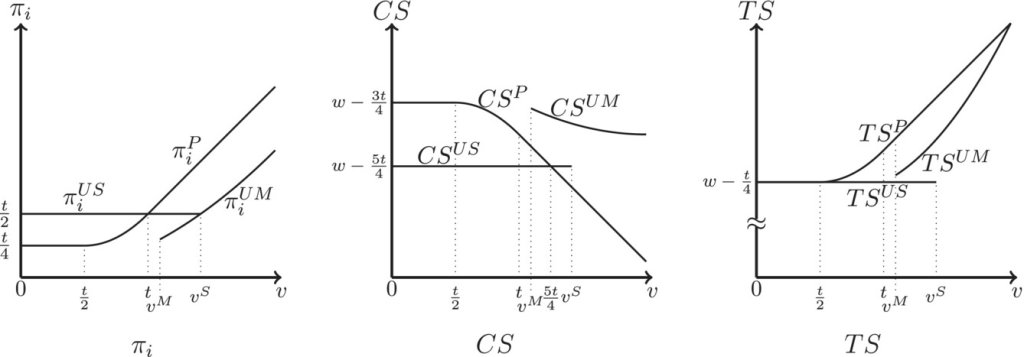Field of Research
Industrial Organization
Research Topics
The effects of personal information on competition
Overview of Research
Generally, firms decide their actions and strategies while considering those of their competitors. For instance, when local retailers are confronted with a mega-scale retailer’s entry plan, they will consider countermeasures in response. To prepare for entry, they might enhance customer convenience by introducing home delivery services, or they might submit petitions or lobby policymakers to block the entry of the mega-scale retailer. I analyze how firms’ activities impact their profits and consumer welfare, which together shape social welfare, by taking into account strategic interactions among economic agents.
Recently, I have theoretically analyzed the role of personal information in pricing. Advances in information technology have enabled firms that sell directly to consumers to engage in price discrimination based on collected customer data. In fact, some tech-advantaged firms implement sophisticated pricing strategies, offering personalized discounts and prices, making their pricing more refined. In particular, online firms can easily track customers’ browsing histories and identify individuals. With the ability to personalize offers, firms have adopted more aggressive sales promotions. However, concerns have arisen about excessively high personalized prices being charged to customers with a high willingness to pay. Taking these factors into account, I analyze the effects of personal information and personalized pricing on social welfare.
Also, I often develop theoretical models to investigate key issues, such as trading practices in business transactions and vertical contracting.

Matsushima, Noriaki
Professor
Degree: Ph.D. in Engineering (Tokyo Institute of Technology)
n.matsushima.osipp@osaka-u.ac.jp






























